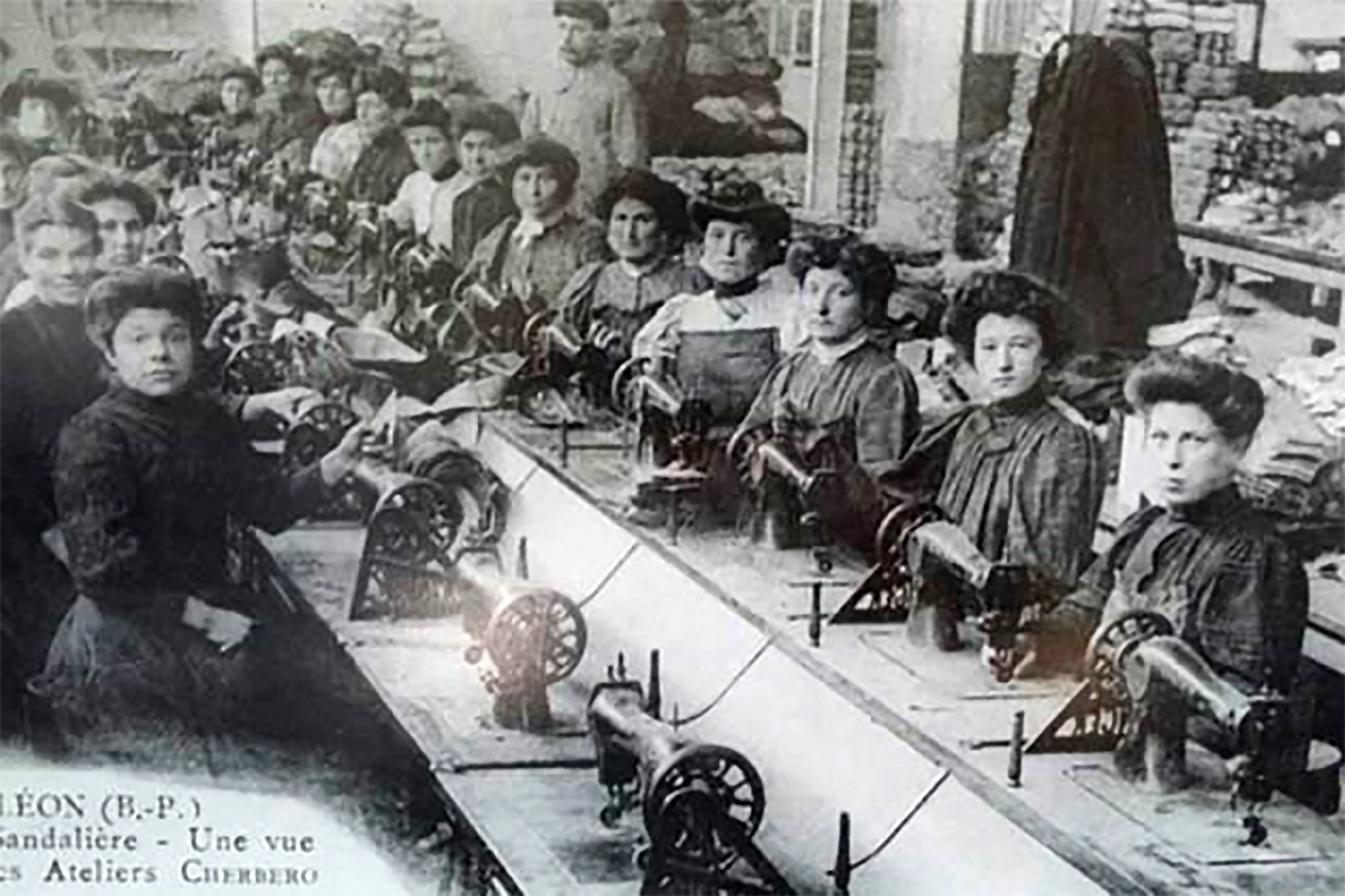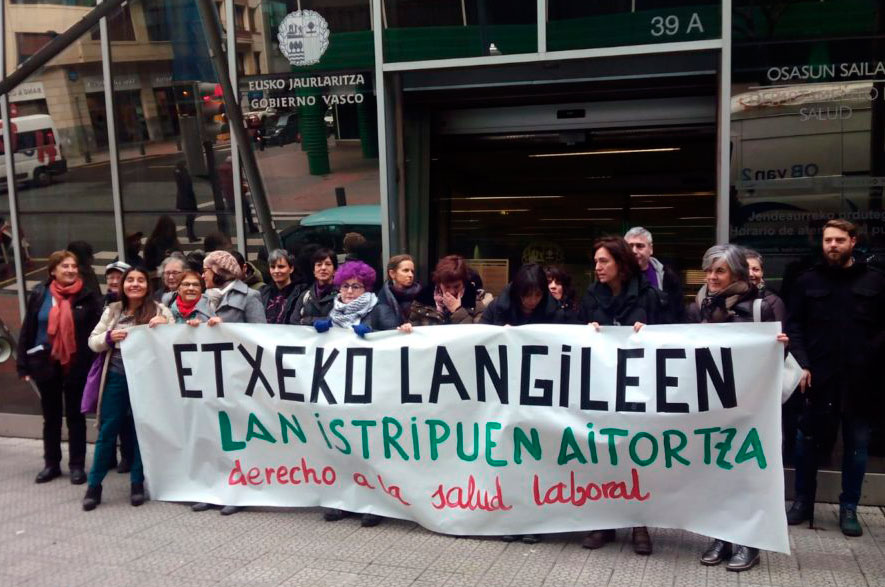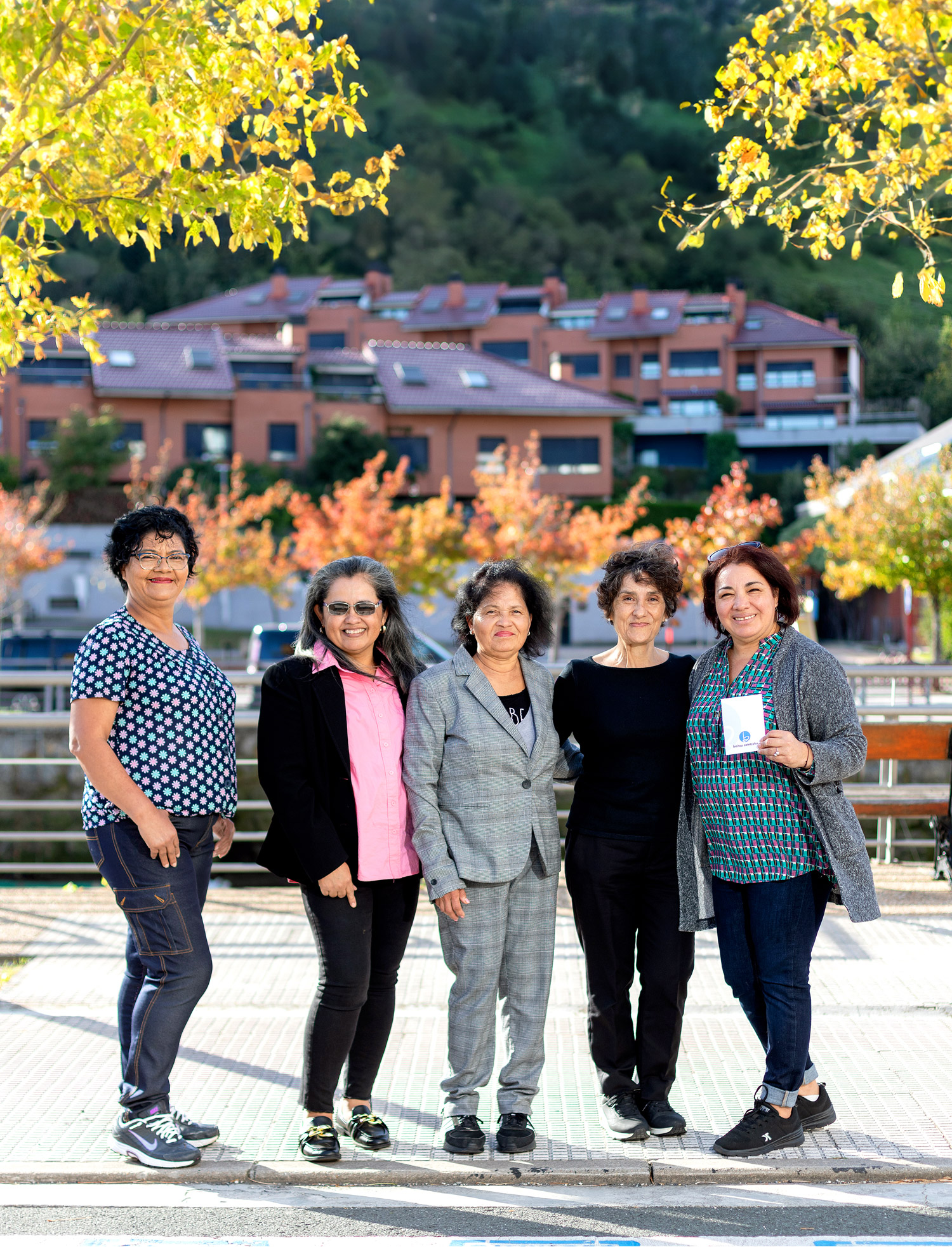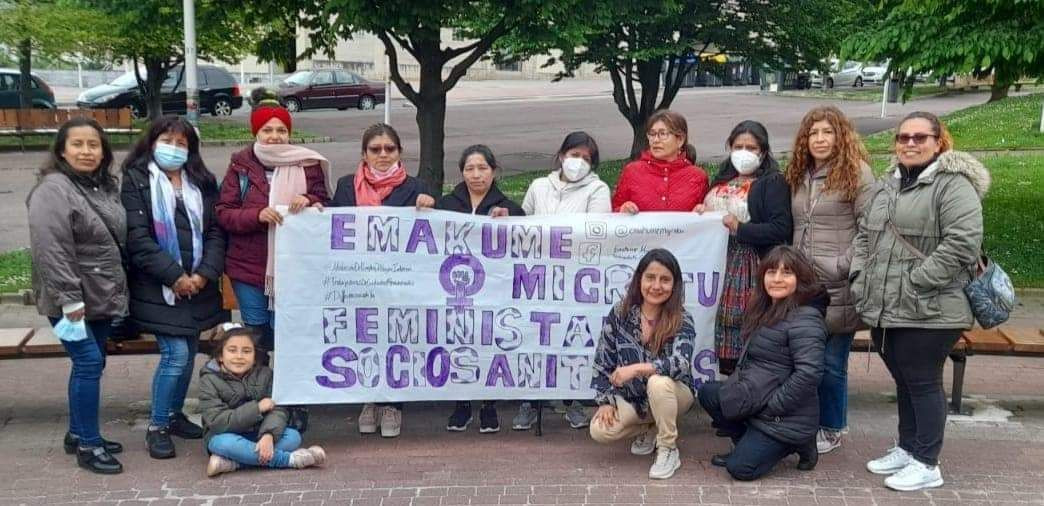The inexhaustible burden of migrant women
- Silvia Carrizo Fernández has just presented the research "The Endless Debt of Immigrant Women: A Transnational Look from the Basque Country in the Postpandemic World". The work focuses on the debt of migrant women, studying not only in the economic sphere, but also the pain that the need to migrate has left women in the personal sphere. They wanted to alleviate the individual burden and to give the report a collective character, as debt affects all participants in a similar way.

29 women have participated in the research. Regarding age, 62% of participants are between 31 and 50 years old, 33% over 51 years old and 5% between 18 and 30 years old. As for studies, 62% had secondary education, 29% had higher and university studies and 6% had basic studies. Women from Nicaragua, Honduras, Argentina, Colombia and Chile, among others, have given testimonies, and almost half have been living in Euskal Herria for more than ten years. All linked to the Malen Etxea association. Malen Etxea has been working for years on the rights of migrant women. In recent years, among other initiatives, the definitive end of slave labor is being claimed, an immigrant woman struggling to eradicate the 24 hours of work and the service of the employer during the seven days of the week. According to data from the Basque Immigration Observatory Ikuspegi, the labour market of the immigrant population of the CAPV focuses mainly on the profile of women, and focuses on a very specific sector related to care. In this sector, 53 per cent of the 200,000 foreigners residing in the three territories are women, and one in two is contracted to carry out domestic tasks and personal care.
“How do I do it? I don’t know… I don’t know how I do it to solve all the problems, to cover them all, you run out of nothing, but you’re happy… you’ve complied with everyone, even a little bit. At this point I have my father, my mother, my two brothers, my husband and my children.” It is the voice of one of the women who has participated in the research. Like the rest of the participants, “loneliness, fear and restlessness” are their daily emotions. The author of the report wished to broaden the concept of debt, since not only have they reflected on the economic aspect, but also taken into account the other collateral damage that migration has left the individual. “We’re also talking about not being able to embrace those we want and take so much away from family members when we say debt is endless,” says one of the participants.
The main conclusion of the report is that the age, the years that have been here, the administrative situation, the level of training, the country of origin and the colour of the skin influence the redefinition of the survival dynamics of immigrant workers, both personally and collectively. That is, origin, race and sex profoundly condition the post-migratory vital project. It should be noted that none of the participating women left the place of origin because they wanted it, but it was a “no choice” decision they had to make “by force majeure”. The precarious socio-economic situation of the countries of origin, violent coexistence, the elimination of public services and the regular recruitment of women to ensure the well-being of the citizens of the northern hemisphere are a multilateral knot. Migration is often the solution to release the flax.
In the short term, they consider it “impossible” to put an end to this dynamic, since the welfare of society in the northern hemisphere increases the need for women in the southern hemisphere; there is no comprehensive care strategy developed in the Basque Country. On the other hand, the gender distinction established by the patriarchal system has not yet implicated men in the care of the elderly, so the research has confirmed that immigrant women cover this deficiency. The data is revealing: In the Autonomous Community of the Basque Country, some 263,000 people live alone, of whom 112,531 (43%) are 65 years of age or older. According to the latest Eustat data, 77,580 people need a caregiver on a daily basis. This is the reality of the integration and socialization of a high percentage of immigrant women.
The need to support the
origin began the process of indebtedness before the migration of the immigrant women who have participated in the Report, as a result of initiatives that did not generate profitability or the credits requested to travel. In the first years, all resources were consumed, while the needs for housing, health, food and education were increased. Among the participating women, 57 per cent of them incurred a debt to undertake the journey, among other things. Several participants paid the house they had in their home country to ask for credit, and they fear that if they do not pay that debt they will take away the place where their relatives live. Once arrived in the country of destination, the debt hole has only grown, as poor working conditions and low wages do not allow them to save anything: “I was very worried about debt, because the house I mortgaged was not mine, but my father’s. You go into a dynamic, you almost live just to pay debts. I didn't spend anything, I wore used clothing, I didn't drink a coffee. I spent about three years paying the debt. The people we come with debt do not live,” says the 58-year-old Nicaraguan woman.
Regarding housing, 45% of the participants residing in Gipuzkoa acknowledge that they have space to live: For 20%, this space is located in the workplace, that is, in households that serve the elderly, while 70% live in a rented housing and the rest does not pay rent for the place where they live. 55% only have one room to carry out their daily life. In the words of the 59-year-old Chilean, “it is impossible” to have a home in their situation, because, despite sacrificing many things, wages do not allow them to have their own house: “Even if we do a lot of work, we can only share it with a bit of luck.” In addition, in the last year, more than half of the participants have incurred debts to keep sending money to their country of origin.
The involvement of allies, the articulation of current society, the lack of a public surveillance network and the lack of
alternatives to precarious work make it difficult to stop the wheel of debt as a fundamental instrument. In the last decade, however, the participants affirmed that the feminist movement has made a great effort and work, since at the center of the agenda has included the need to end the conflict and the exploitation of care. However, the report concludes that the perception of migrant women is that their rights have not become “a priority issue” on the feminist agenda, nor on the agenda of the coalition of the Basque left. As for the reasons why a transformative force is not achieved in the allied sectors, there is a need to provide care to the elderly in their families. For the participants, men and women in these sectors, like the rest, seek the solution of domestic care in a globalized free market, although they contradict their principles and political ideas. “There is no consistency. They realize, but they need someone to take care of their mother 24 hours for less than half of what they earn, because they don’t give up their life organized by care.”
They claim that the elimination of internal work must be a priority on the feminist agenda, and that the citizenship of the Basque Country must put the issue on the political agenda, because they have the right to vote, unlike immigrant women. In addition, they have recalled that immigrant women do not seek “guardians”, but allies, since ending the working conditions of slavery is their struggle. “We are clear that we have to achieve our rights, but the fraternity of the rest of women is essential to move forward,” said one of the members of the Malen House.
Maule, 1892. Eight women from the Salazar Valley headed home from the capital of Zuberoa, but on the way, in Larrain, they were shocked by the snow and all were killed by the cold. Of the eight, seven names have come: Felicia Juanko, Felipce Landa, Dolores Arbe, Justa Larrea,... [+]
International Migrants Day is celebrated on 18 December. Last year, an institutional event was held at the Alhóndiga in Bilbao in cooperation with the social partners and I was invited to participate. There I had an unbeatable opportunity to meet new creators and, above all, to... [+]









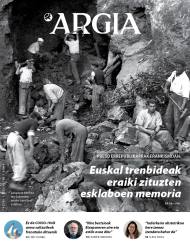

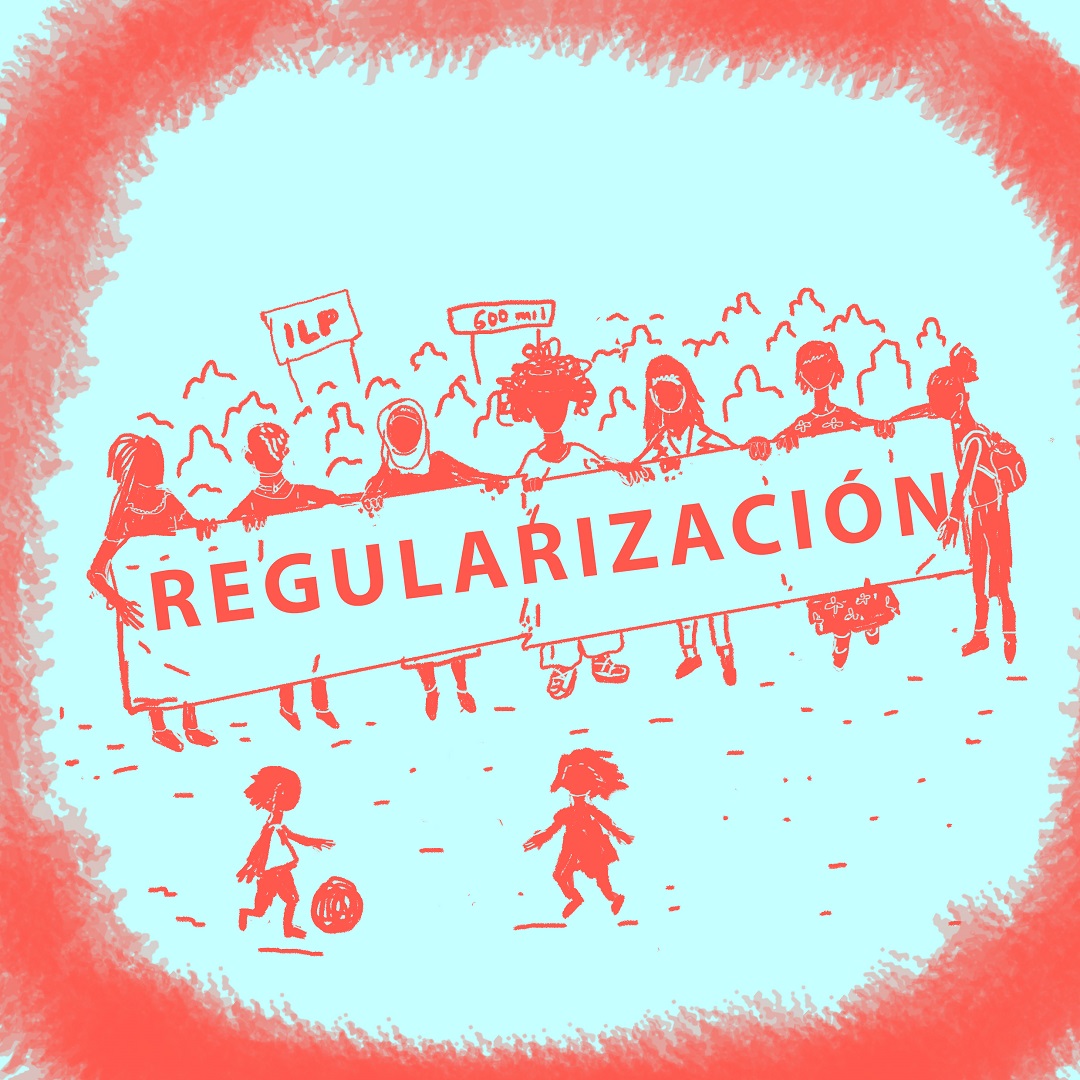
.jpg)
